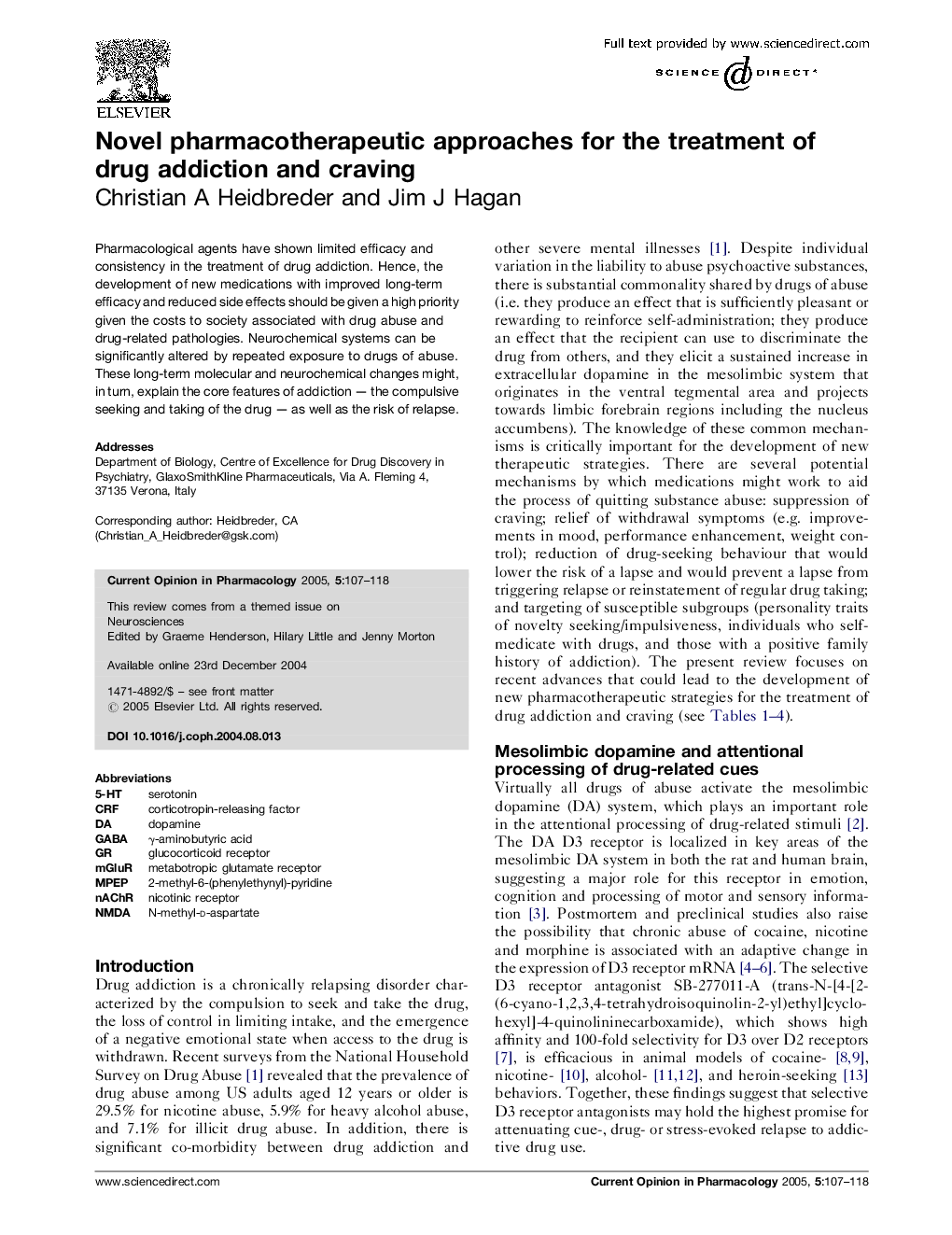| Article ID | Journal | Published Year | Pages | File Type |
|---|---|---|---|---|
| 9006556 | Current Opinion in Pharmacology | 2005 | 12 Pages |
Abstract
Pharmacological agents have shown limited efficacy and consistency in the treatment of drug addiction. Hence, the development of new medications with improved long-term efficacy and reduced side effects should be given a high priority given the costs to society associated with drug abuse and drug-related pathologies. Neurochemical systems can be significantly altered by repeated exposure to drugs of abuse. These long-term molecular and neurochemical changes might, in turn, explain the core features of addiction - the compulsive seeking and taking of the drug - as well as the risk of relapse.
Keywords
Related Topics
Life Sciences
Neuroscience
Cellular and Molecular Neuroscience
Authors
Christian A Heidbreder, Jim J Hagan,
